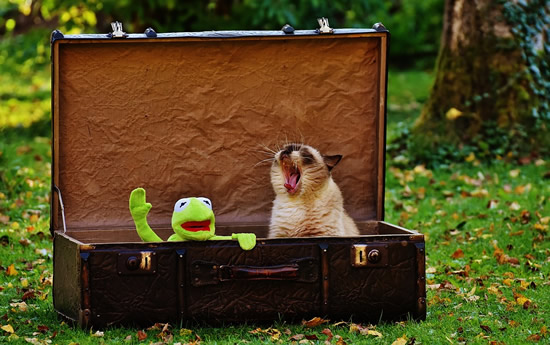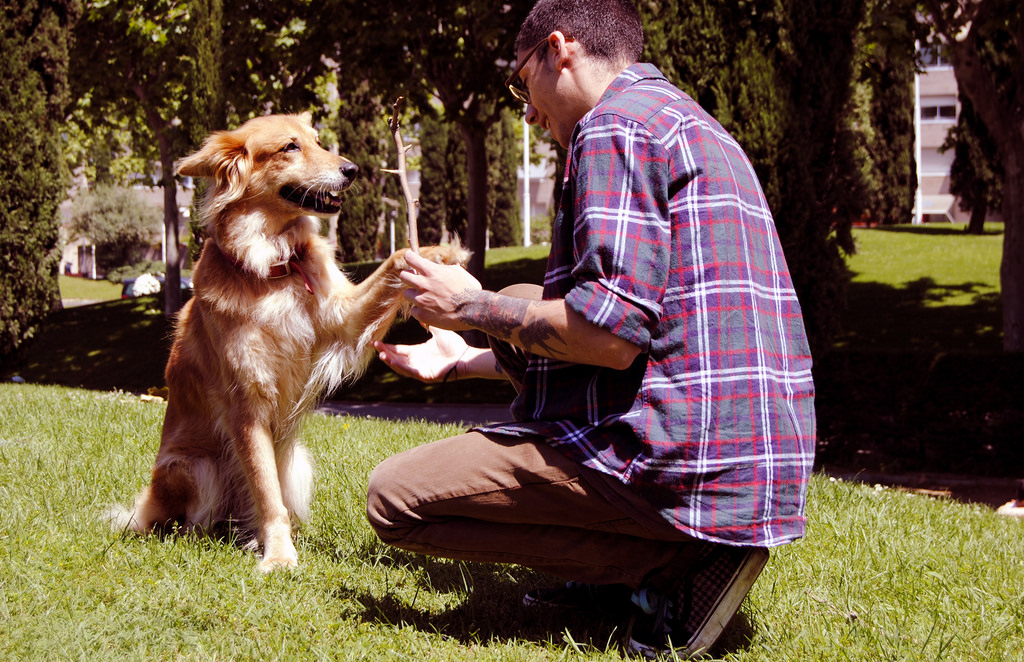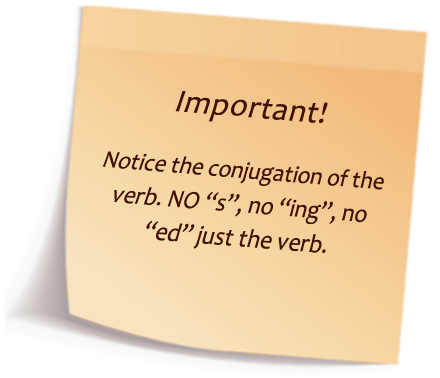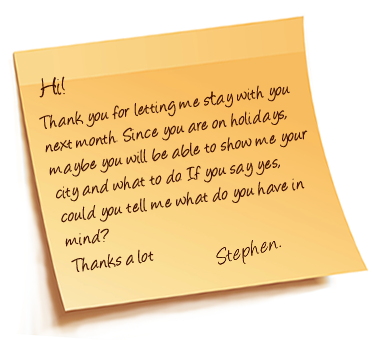NOUN
Auxiliary verb

Alexas. (2016). Pack [photo]. Retrieved on 2017, March 27 from https://pixabay.com/es/kermit-para-el-equipaje-antig%C3%BCedad-1706049/
By the end of this topic, you will:
Express promises, favours and future predictions by using the modal verb “will” to talk about personal experiences and possibilities in the future.
Uses
The future simple with “Will” is used:
For example: Use of qualifying adjectives
Our outdoors ballet recital won´t be affected by the weather.

Koroed85. (2014). Ballet [photo]. Retrieved on 2017, March 27 from https://pixabay.com/es/ballet-noche-puesta-del-sol-danza-1262613/
I just don´t like cookies. I think you will hate them too.

Towne, R. (2010). Disgusted Baby [photo]. Retrieved on 2017, March 27 from https://www.flickr.com/photos/stockerre/4887622204

McGuire, R. (2014). Man [photo]. Retrieved on 2017, March 27 from https://pixabay.com/en/hunger-hungry-eating-cookie-413685/
I will love you for the rest of my life.

Colomb, M. (2011). Mother [photo]. Retrieved on 2017, March 27 from
https://commons.wikimedia.org/wiki/File:Mother%27s_Love.jpg
Will you give me your paw?

Aparicio, R. (2011). Dog [photo]. Retrieved on 2017, March 27 from
https://www.flickr.com/photos/vive-recordando/5718103103
If I visit Oaxaca I will let you know.
Guzmán, Z. (2016). Exconvento de Santo Domingo [photo]. Retrieved on 2017, March 27 from
https://es.wikipedia.org/wiki/Archivo:Templo_de_Santo_Domingo_de_Guzm%C3%A1n_(Oaxaca).JPG

We make predictions based on our opinion or personal experience, and they are usually preceded by I think, I guess, I imagine, or any other phrase that establishes it as a personal opinion.
Instruction: Click on each topic to display the information.
When we use will in an affirmative way, we try to describe an action that is possible to happen in the future.
| I | will | grow old | with you |
| Subject | Will | Verb (base form) |
Complement |
When we use will in an affirmative way, we try to describe an action that is possible to happen in the future.
The negative sentences are used to express something that we believe is not possible to happen in the future.
| She | won't | go out | whit you, stop insisting. | |
| Subject | Will | Not | Verb (base form) |
Complement |
As you could see, the probabilities in the last example don´t exist
The interrogative sentences help us for activities in the future or requests in a polite way of something.
| Will | you | go | to a party with me? |
| Will | Subject | Verb (base form) |
Complement |
As you could see, we can use it to make invitations
Short answers
Yes, I will
No, I won´t.
Third person
Yes, she will.
No, she won’t.
REMEMBER!
The objective of the Yes / No questions is to get a yes or no in the answer, extra information most come after a “yes” or a “no”.
| What | will | you | do | tomorrow? |
| word | will | Subject | Verb (base form) |
Complement |
REMEMBER!
The objective of the WH questions is to get information.
You need complete sentences.
Activity 1
In the next activity, you will read some tips taken from a magazine. You will practice the main topic of this lesson, and at the same time, practice reading comprehension.
Choose the most appropriate option for the following statements. At the end of the activity, you can check your score.
Activity 2
As explored in this section, “will” is useful to talk about the future according to our perspective.
Listen to a podcast about “Ten things to do in Mexico City”.
Taken and adapted from TLSpanish. (2017, March 8). 10 Things to Do in Mexico City [Video file]. Retrieved on 2017, March 30 from https://www.youtube.com/watch?v=QrSu5h04PLc
While you listen, practice your comprehension using the information reviewed in the content. Answer the sentences from the exercise according to the information you heard.
Activity 3
As checked in the content, use the information of this unit to complete the activity.
You have listened to a woman talking about the ten top things to do in Mexico City, now is your turn.
Through this activity, you will practice the use of will to express your predictions and promises to someone who comes to your city.
Use the arrows to navigate from photo to photo, or click on the bullets to browse images. Take a look at the following example.
Use the information in the content to talk about activities to do, places to visit or food to taste in your city. Write using 100 – 150 words using “will” at least eight times in affirmative and 2 in negative sentences.
Consider the points on the rubrics so that you can evaluate yourself.
Activity 4
We have expressed our opinions about places to visit. Now on this activity, you will practice fluency, pronunciation and the uses of will to express opinions, offers and promises.
Using everything we have explored about “will” answer the request of one of your friends.

It is essential that your audio file is no shorter than 40 minutes and no longer than 90 minutes. You will also need to use “will” at least eight times in affirmative and at least 2 are negative sentences. Take a look at the example so can record a similar one. When you finish, evaluate yourself using the rubrics.
Remember to organise your ideas and DO NOT go over the time limit, or it will affect your score.
Identify if the following sentences are predictions, promises, offers or requests.
Choose the most appropriate option for the following statements. You can know your score at the end of the exercise.
If needed, you can return to the grammatical explanation of the topic, so you can refresh your memory by giving click here.
Curso de inglés. (n. d.). Future Simple. Retrieved on
2017, March 31 from
https://www.curso-ingles.com/aprender/cursos/nivel-intermedio/verb-tenses-future/future-simple
Education first. (n. d.). Simple future. Retrieved on
2017, March 31 from
https://www.ef.com.mx/recursos-aprender-ingles/gramatica-inglesa/simple-future/
Woodward English. (n. d.). Future - Will. English Grammar Notes. Retrieved on
2017, March 31 from
https://www.grammar.cl/Notes/Future_Will.htm